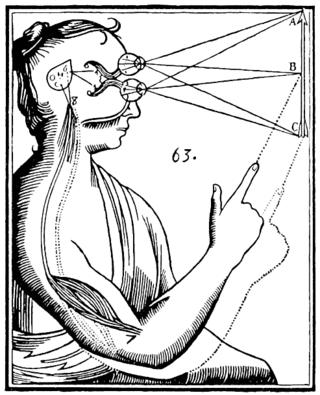Biography
Foster was born in North London on 5 May 1941 and grew up in Southgate. [2] He studied at Mercers' School, but had to transfer to the City of London School to do A-levels after Mercers' closure (about which he wrote a letter to The Times in protest). [2] He started studying classics at Lincoln College, Oxford, but transferred to psychology, philosophy and physiology after discovering a distaste for studying ancient history. Foster stayed a further year at Lincoln, after obtaining a First in 1964, and began a D.Phil. The support of his doctoral supervisor, A. J. Ayer, ensured Foster’s election to a Stone-Platt Junior Research Fellowship at New College in 1965 and, a year later, to his tutorial Fellowship at Brasenose. [2] He retained this position until ill health finally forced his early retirement, as a "Mr" in 2005. [2] (As Peter J. N. Sinclair notes, most Brasenose Arts tutors of Foster's generation, never completed a doctoral thesis). [2]
Foster was a devoted Christian and an outspoken pro-life campaigner. Foster met his wife-to-be Helen in 1963 and the two married in Royal Tunbridge Wells in 1967. He joined the Church of England. In 1989 both John and Helen converted from Anglicanism to Roman Catholicism. [2]
Foster died on 1 January 2009.

Sir Alfred Jules "Freddie" Ayer, usually cited as A. J. Ayer, was an English philosopher known for his promotion of logical positivism, particularly in his books Language, Truth, and Logic (1936) and The Problem of Knowledge (1956).

In philosophy, empiricism is an epistemological view which holds that true knowledge or justification comes only or primarily from sensory experience. It is one of several competing views within epistemology, along with rationalism and skepticism. Empiricism emphasizes the central role of empirical evidence in the formation of ideas, rather than innate ideas or traditions. Empiricists may argue that traditions arise due to relations of previous sensory experiences.

Idealism in philosophy, also known as philosophical idealism or metaphysical idealism, is the set of metaphysical perspectives asserting that, most fundamentally, reality is equivalent to mind, spirit, or consciousness; that reality is entirely a mental construct; or that ideas are the highest form of reality or have the greatest claim to being considered "real". The radical latter view is often first credited to the Ancient Greek philosopher Plato as part of a theory now known as Platonic idealism. Besides in Western philosophy, idealism also appears in some Indian philosophy, namely in Vedanta, one of the orthodox schools of Hindu philosophy, and in some streams of Buddhism.

The philosophy of perception is concerned with the nature of perceptual experience and the status of perceptual data, in particular how they relate to beliefs about, or knowledge of, the world. Any explicit account of perception requires a commitment to one of a variety of ontological or metaphysical views. Philosophers distinguish internalist accounts, which assume that perceptions of objects, and knowledge or beliefs about them, are aspects of an individual's mind, and externalist accounts, which state that they constitute real aspects of the world external to the individual. The position of naïve realism—the 'everyday' impression of physical objects constituting what is perceived—is to some extent contradicted by the occurrence of perceptual illusions and hallucinations and the relativity of perceptual experience as well as certain insights in science. Realist conceptions include phenomenalism and direct and indirect realism. Anti-realist conceptions include idealism and skepticism. Recent philosophical work have expanded on the philosophical features of perception by going beyond the single paradigm of vision.
Solipsism is the philosophical idea that only one's mind is sure to exist. As an epistemological position, solipsism holds that knowledge of anything outside one's own mind is unsure; the external world and other minds cannot be known and might not exist outside the mind.

In the philosophy of mind, mind–body dualism denotes either the view that mental phenomena are non-physical, or that the mind and body are distinct and separable. Thus, it encompasses a set of views about the relationship between mind and matter, as well as between subject and object, and is contrasted with other positions, such as physicalism and enactivism, in the mind–body problem.

Edmund Lee Gettier III was an American philosopher at the University of Massachusetts Amherst. He is best known for his article written in 1963: "Is Justified True Belief Knowledge?", which has generated an extensive philosophical literature trying to respond to what became known as the Gettier problem.

Subjective idealism, or empirical idealism, is a form of philosophical monism that holds that only minds and mental contents exist. It entails and is generally identified or associated with immaterialism, the doctrine that material things do not exist. Subjective idealism rejects dualism, neutral monism, and materialism; it is the contrary of eliminative materialism, the doctrine that all or some classes of mental phenomena do not exist, but are sheer illusions.

Modern philosophy is philosophy developed in the modern era and associated with modernity. It is not a specific doctrine or school, although there are certain assumptions common to much of it, which helps to distinguish it from earlier philosophy.

Philosophy is the study of general and fundamental problems concerning matters such as existence, knowledge, values, reason, mind, and language. It is distinguished from other ways of addressing fundamental questions by being critical and generally systematic and by its reliance on rational argument. It involves logical analysis of language and clarification of the meaning of words and concepts.
In ontology and the philosophy of mind, a non-physical entity is an object that exists outside physical reality. The philosophical schools of idealism and dualism assert that such entities exist, while physicalism asserts that they do not. Positing the existence of non-physical entities leads to further questions concerning their inherent nature and their relation to physical entities.

Barry Stroud was a Canadian philosopher and professor at the University of California, Berkeley. Known especially for his work on philosophical skepticism, he wrote about David Hume, Ludwig Wittgenstein, the metaphysics of color, and many other topics.

British philosophy refers to the philosophical tradition of the British people. "The native characteristics of British philosophy are these: common sense, dislike of complication, a strong preference for the concrete over the abstract and a certain awkward honesty of method in which an occasional pearl of poetry is embedded".
Interactionism or interactionist dualism is the theory in the philosophy of mind which holds that matter and mind are two distinct and independent substances that exert causal effects on one another. An example of your mind influencing your body would be if you are depressed, you can observe the effects on your body, such as a slouched posture, a lackluster smile, etc. Another example, this time of your body affecting your mind would be: If you struck your toe very forcefully on a door, you would experience terrible pain. Interactionism is one type of dualism, traditionally a type of substance dualism though more recently also sometimes a form of property dualism. Many philosophers and scientists have responded to this theory with arguments both supporting and opposing its relevance to life and whether the theory corresponds to reality.
Transcendental Humanism in philosophy considers humans as simultaneously the originator of meaning, and subject to a larger ultimate truth that exists beyond the human realm (transcendence). The philosophy suggests that the humanistic approach is guided by “accuracy, truth, discovery, and objectivity” that transcends or exists apart from subjectivity.
Mark Eli Kalderon is an American philosopher and Professor of Philosophy in the University College London Department of Philosophy. He is known for his expertise on philosophy of color and philosophy of perception.

Alan Richard White was an analytic philosopher who worked mainly in epistemology, the philosophy of mind, and, latterly, legal philosophy. Peter Hacker notes that he was "the most skillful developer of Rylean ... ideas in philosophical psychology" and that "if anyone surpassed Austin in subtlety and refinement in the discrimination of grammatical differences, it was White." Richard Swinburne remarks that "during the heyday of 'ordinary language philosophy' no tongue practised it better."
Dutch philosophy is a broad branch of philosophy that discusses the contributions of Dutch philosophers to the discourse of Western philosophy and Renaissance philosophy. The philosophy, as its own entity, arose in the 16th and 17th centuries through the philosophical studies of Desiderius Erasmus and Baruch Spinoza. The adoption of the humanistic perspective by Erasmus, despite his Christian background, and rational but theocentric perspective expounded by Spinoza, supported each of these philosopher's works. In general, the philosophy revolved around acknowledging the reality of human self-determination and rational thought rather than focusing on traditional ideals of fatalism and virtue raised in Christianity. The roots of philosophical frameworks like the mind-body dualism and monism debate can also be traced to Dutch philosophy, which is attributed to 17th century philosopher René Descartes. Descartes was both a mathematician and philosopher during the Dutch Golden Age, despite being from the Kingdom of France. Modern Dutch philosophers like D.H. Th. Vollenhoven provided critical analyses on the dichotomy between dualism and monism.
May Sim is an American philosopher and professor of philosophy at College of the Holy Cross. She is a former president of the Metaphysical Society of America (2013). She is noted for her comparative studies of Confucian and Aristotelian ethics. She was influenced by Alasdair MacIntyre, who supervised her doctoral dissertation at Vanderbilt University.
Mark Schroeder is an American philosopher whose scholarship focuses on metaethics, particularly expressivism and other forms of noncognitivism. He is a professor of philosophy at the University of Southern California.










